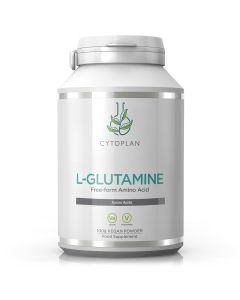Could you be histamine dumping?
What is histamine?
Histamine is a natural chemical that is found in certain foods and occurs naturally in the body. It’s an integral part of our immune response and plays a role in inflammation, but also supports digestive function, brain and nervous system health and circulation. At appropriate levels, histamine is essential for your body to perform optimally, but issues can arise when histamine is released in excess.
Histamine is probably best known for its role in allergic reactions, when exposure to an allergen causes your immune system to overreact. IgE antibodies are produced, which bind with the allergen and activate receptors on mast cells, triggering them to release histamine, which is responsible for allergic symptoms such as sneezing, itching and inflammation.
What is histamine intolerance?
Histamine intolerance is a condition characterised by the accumulation, or ingestion of histamine to a point that exceeds the body’s capacity to break down and eliminate it. This build-up of histamine can cause allergy-like symptoms (without exposure to an allergen) that can extend to the whole body. Symptoms can be sporadic and non-specific, and may include:
-
Skin: Itching, rashes, flushing, eczema
-
Digestive: Bloating, gas, diarrhoea, constipation, stomach pain
-
Respiratory: Runny nose, sneezing, congestion
-
Cardiovascular: Low blood pressure, rapid heart rate
-
Neurological: Headaches, dizziness, fatigue
Usually, histamine is broken down by the enzyme diamine oxidase (DAO), but several factors can cause the enzyme to function sub-optimally, resulting in a build-up of histamine. This may include:
Poor gut health –
DAO is mainly produced in your gut lining, so if your gut is damaged or inflamed, such as in conditions like leaky gut, inflammatory bowel diseases or coeliac disease, then you may have lower enzyme function.
Medication –
Some medications such as NSAIDS and some antidepressants can reduce DAO production or function.
Poor nutrition –
DAO relies on certain nutrients to function. These include vitamins B6 and C, zinc and copper – so a deficiency in any of these nutrients can reduce DAO activity.
Drinking alcohol –
Excessive alcohol intake can interfere with the production and activity of DAO. Alcohol can also trigger the release of histamine from mast cells, and some alcohols, such as wine and beer are naturally high in histamine.
So, what is a histamine dump?
A histamine dump refers to the sudden and significant release of histamine into the body, which leads to an abrupt immune reaction. Histamine dumps often happen at night, because histamine levels naturally fluctuate throughout the day, and peak at night. This is part of the body's natural sleep-wake cycle. Late-night meals rich in histamine, stress-induced hormone fluctuations, and reduced enzyme activity during sleep can all exacerbate nighttime symptoms.
This sudden surge of histamine can disrupt your sleep, and you might experience sudden changes in body temperature, itching, headaches or a racing heart.
This sounds like me…. What can I do to lower histamine levels?
As we’ve already discussed, histamine intolerance and histamine dumping are caused when levels of histamine exceed the body’s capacity to break down and eliminate it – so any protocol to support these conditions need to be twofold: to prevent the overproduction of histamine and to support DAO function to remove excess histamine.
Dietary changes – some foods can increase levels of histamine, so a trial elimination diet whilst keeping a food diary is a great starting point to see if it improves your symptoms.
The following foods are naturally high in histamine:
-
Aged cheese (parmesan, blue cheese)
-
Cured meats (salami, pepperoni)
-
Fermented foods (sauerkraut, kimchi, soy sauce, miso)
-
Alcohol (especially red wine, beer, champagne)
-
Vinegar and anything pickled
-
Smoked or canned fish
-
Some vegetables such as spinach, aubergine, avocadoes and tomatoes
-
Leftovers (histamine builds up the longer food sits)
Whereas the following foods are low in histamine, they can trigger the release of histamine in the body, or block the action of DAO:
-
Citrus fruits
-
Bananas
-
Kiwi fruit
-
Cocoa products including chocolate
-
Papaya
-
Pineapple
-
Strawberries
-
Walnuts and peanuts
-
Mushrooms
-
Black tea
Support DAO activity – as mentioned, DAO requires nutrients such as vitamins B6 and C, zinc and copper to function optimally – so supplementation to ensure optimal levels of these nutrients may be required.
Quercetin -
A natural antihistamine found in foods like apples, onions and tea. Quercetin acts as a mast-cell stabiliser and can help to regulate histamine release. Quercetin can also help to regulate the inflammation associated with histamine intolerance.
Support gut health –
If your gut is leaky or inflamed, supporting its repair may help to increase your DAO production. Bone broths, collagen and L-glutamine can all support gut healing.
Balance your microbiome –
Dysbiosis, or an overgrowth of harmful bacteria can lead to increased histamine release, thus contributing to histamine intolerance. Supporting microbial balance with a multi-strain probiotic can be supportive for those with histamine intolerance – especially when we consider that around 75% of the immune system is believed to reside in the gut, and our gut bacteria are thought to be an integral part of the immune response. While research is still emerging, there appear to be certain probiotic strains that can downgrade histamine, including Lactobacillus rhamnosus, Bifidobacterium infantis, Bifidobacterium longum and Lactobacillus plantarum.
Consider lifestyle –
Chronic stress and disturbed sleep both significantly impact histamine levels and can contribute to histamine-related issues. Stress can trigger histamine release, while poor sleep can exacerbate histamine intolerance symptoms, creating a cyclical relationship where one worsens the other.
Incorporating stress –
Reducing techniques such as meditation, deep breathing exercises, or gentle yoga into your daily routine can help to manage your stress levels. It’s also important to establish a consistent sleep routine each evening, create a relaxing sleep environment that is cool, dark, and quiet, and avoid stimulating activities and electronic devices close to bedtime.










